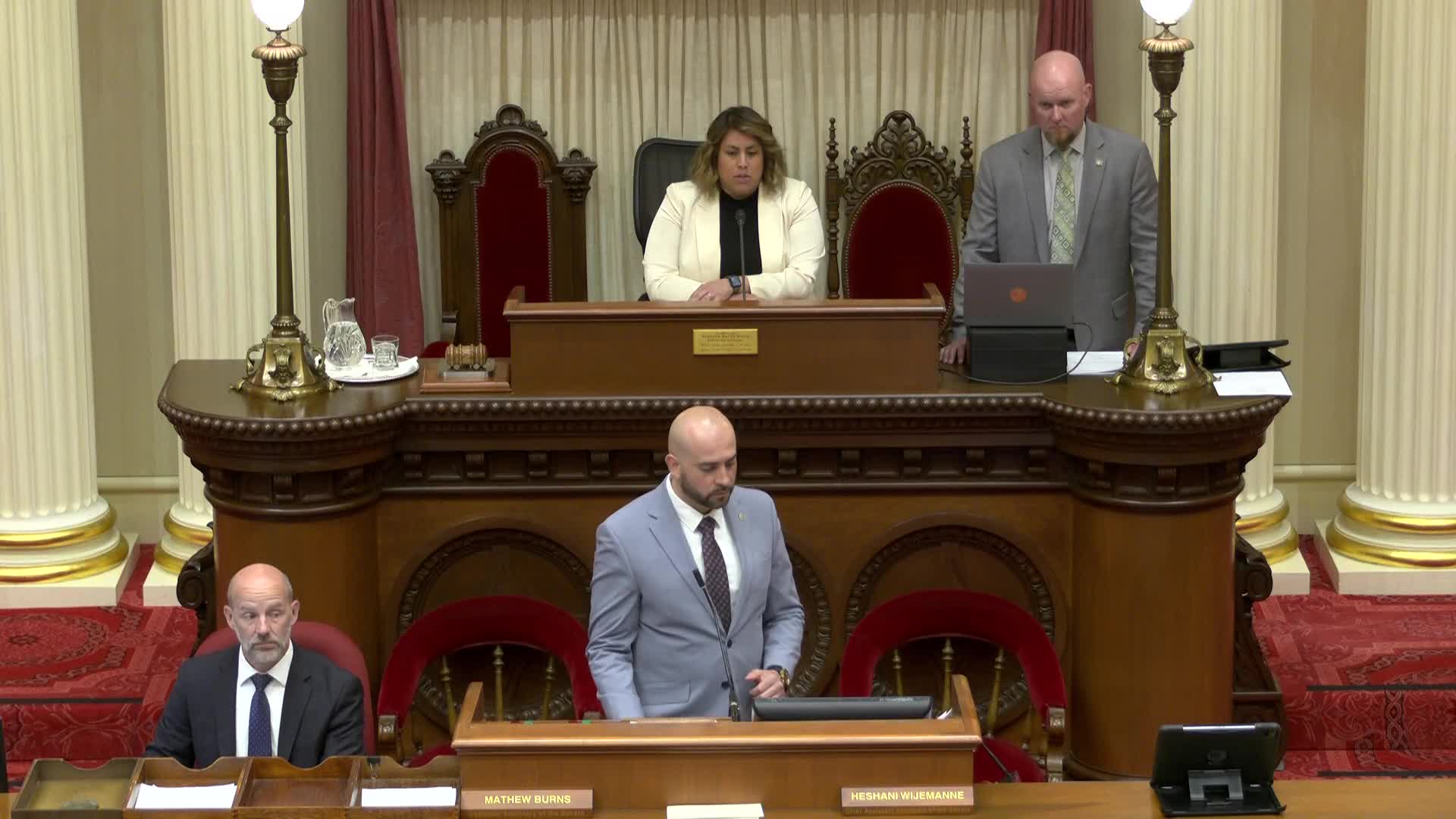Article not found
This article is no longer available. But don't worry—we've gathered other articles that discuss the same topic.
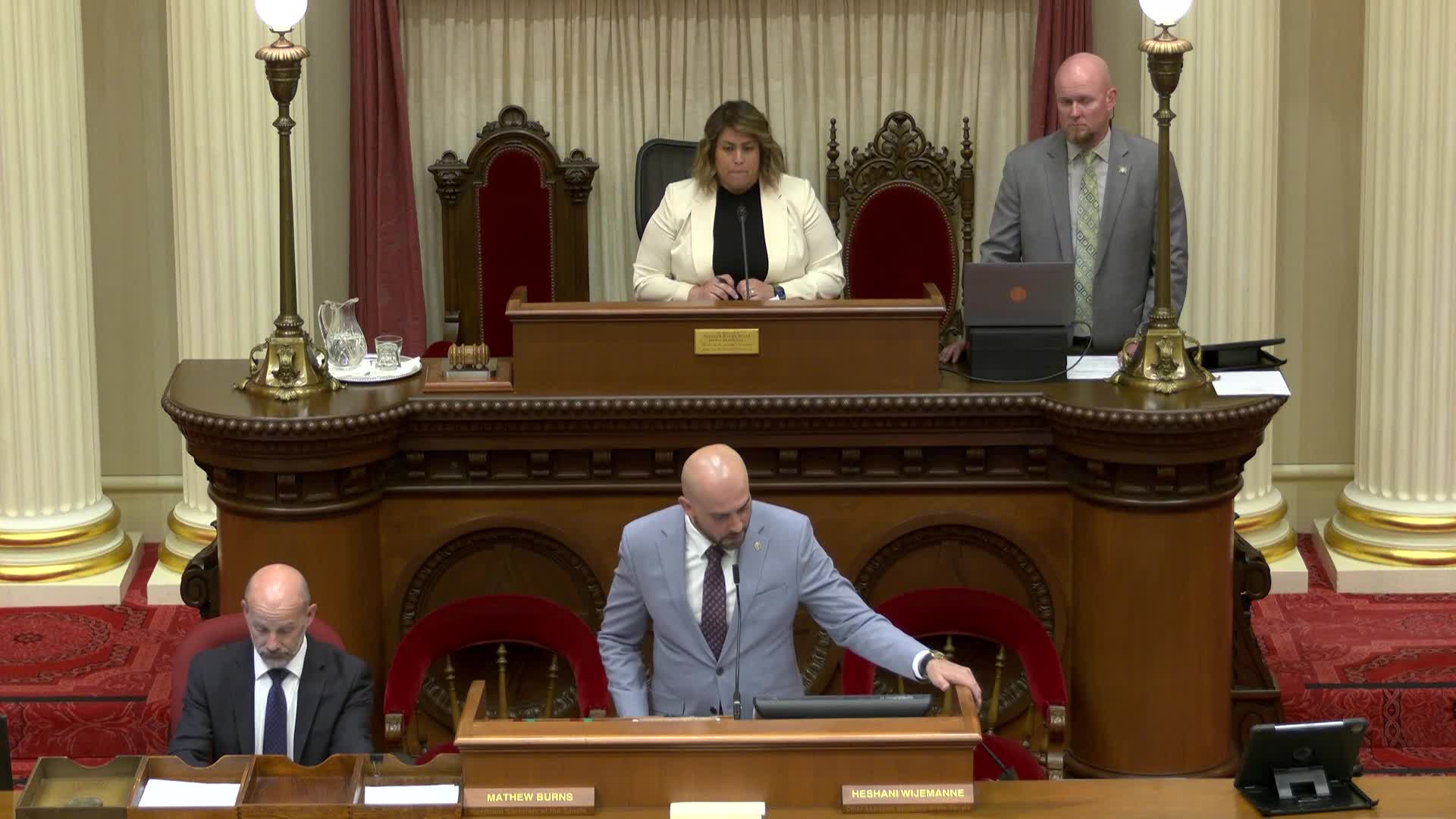
Senate proclaims National Public Works Week, praises infrastructure workers
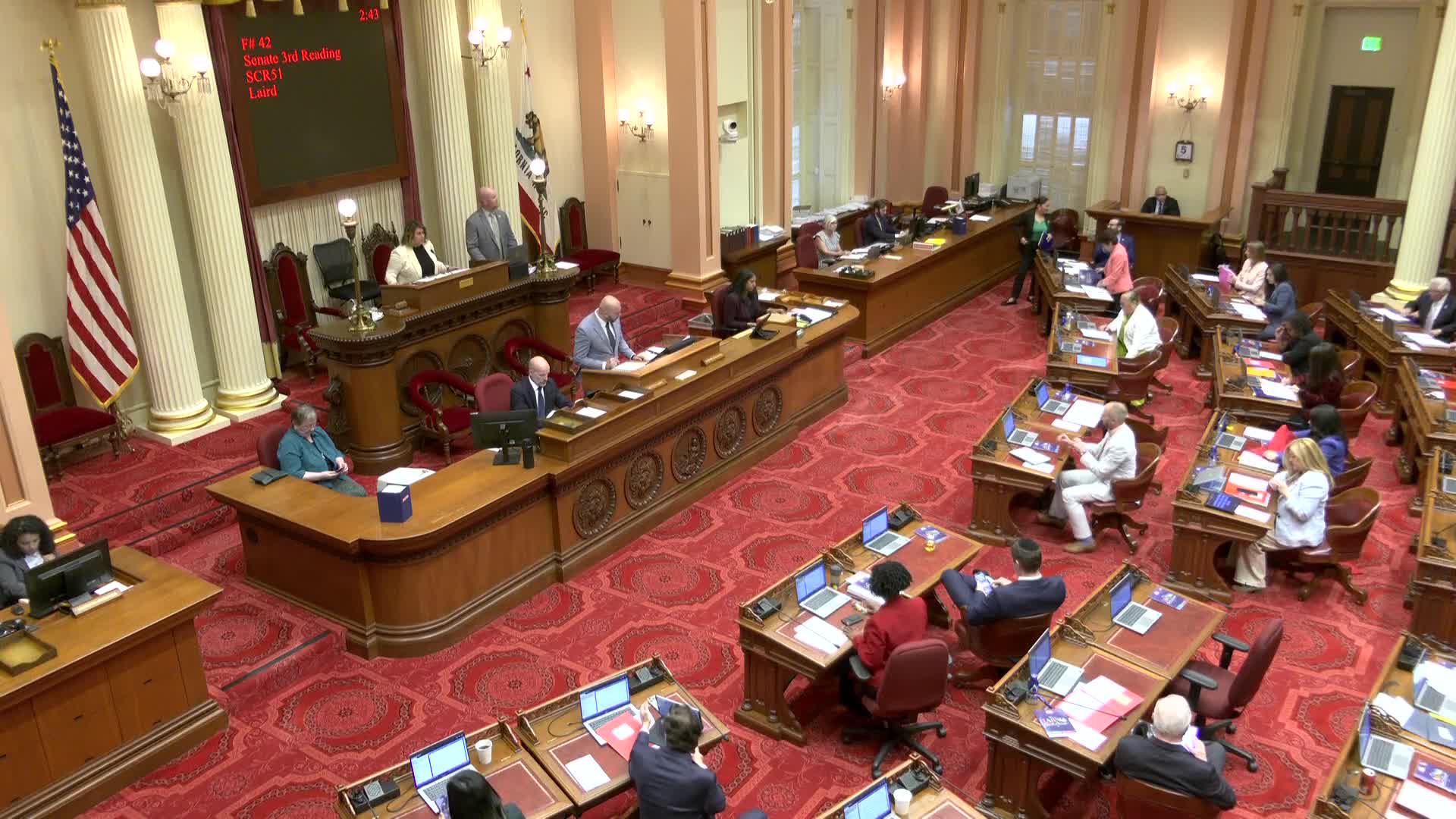
Senate declares May Cystic Fibrosis Awareness Month to highlight disparities and research
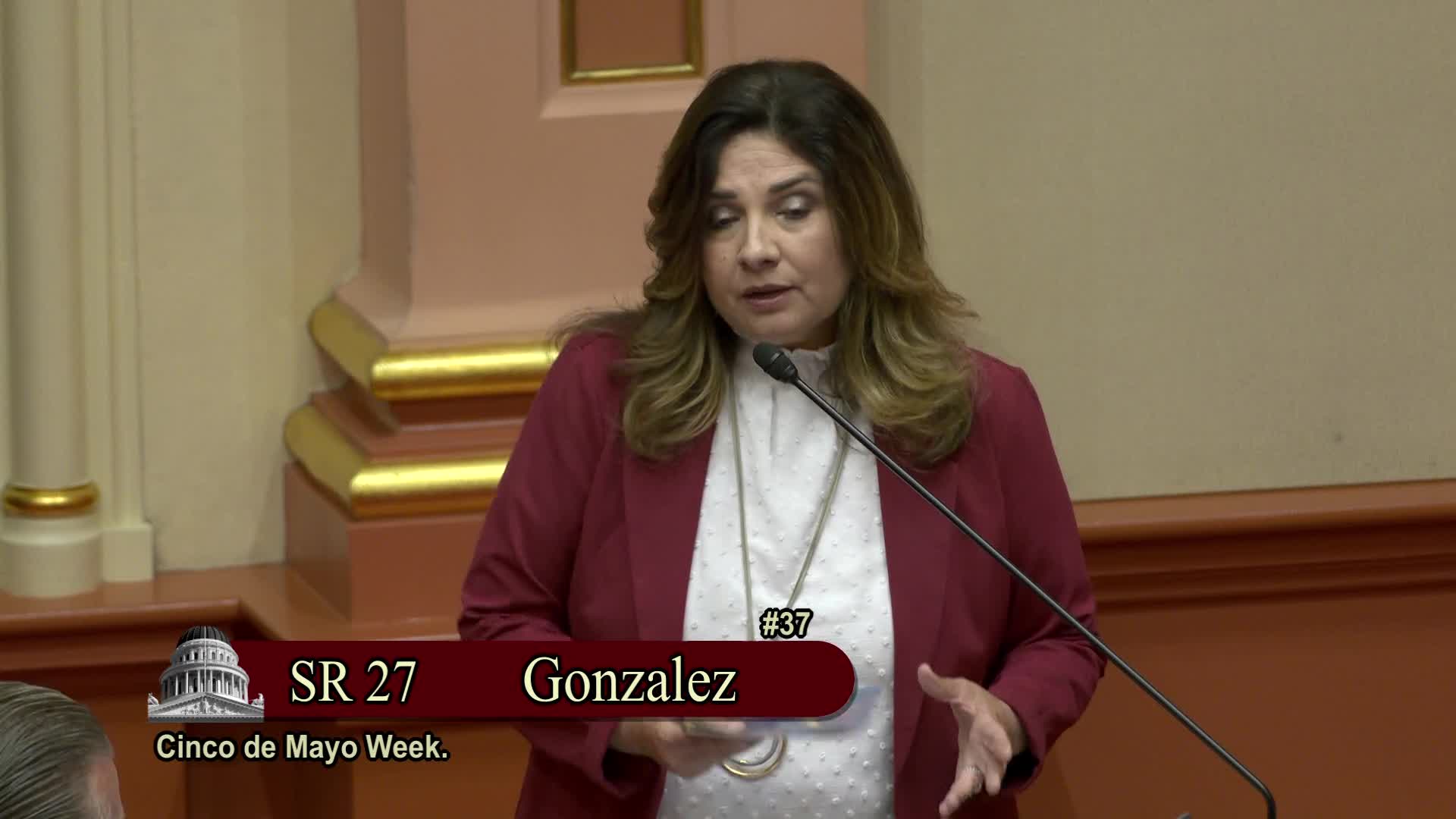
Senate urges Congress not to cut SNAP funding, citing hunger and economic impact in California
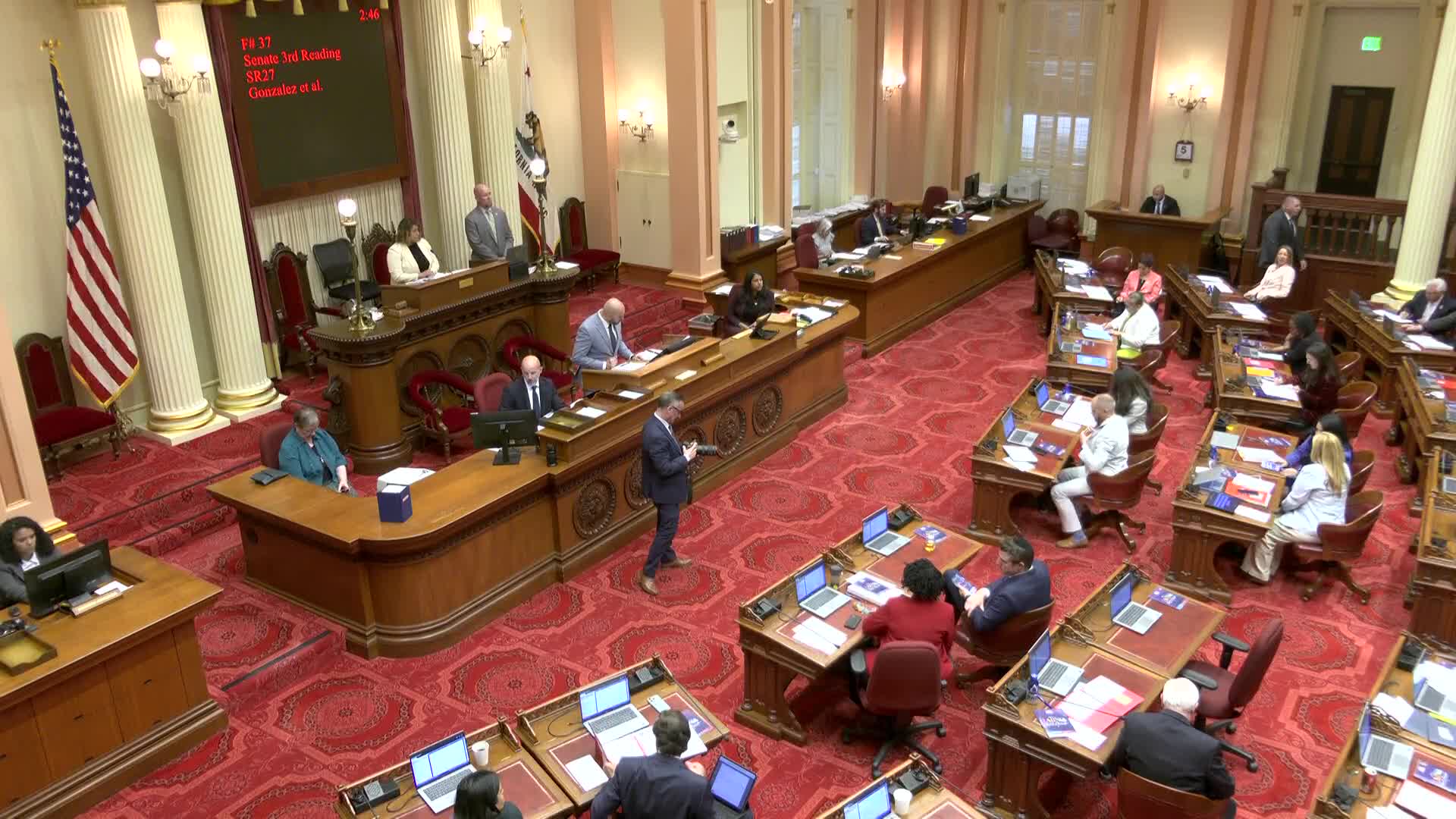
Senate adopts Cinco de Mayo resolution; Latino Spirit Award honorees recognized amid procedural dispute
